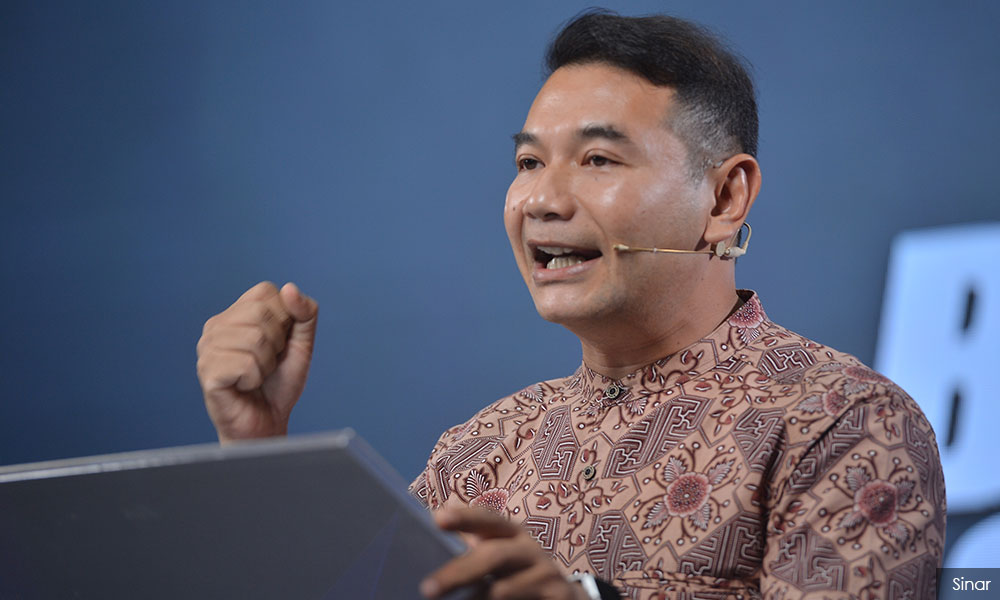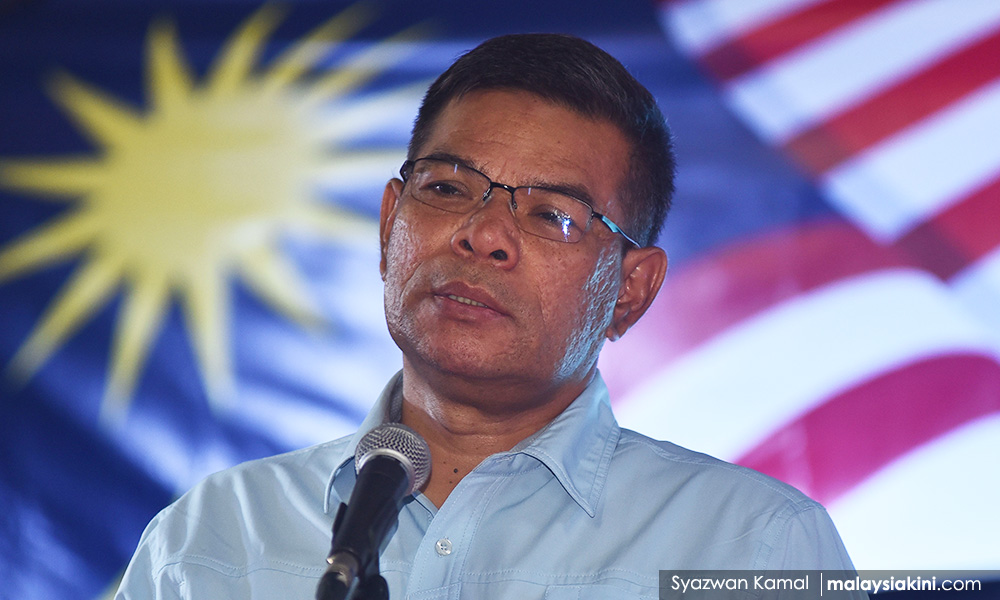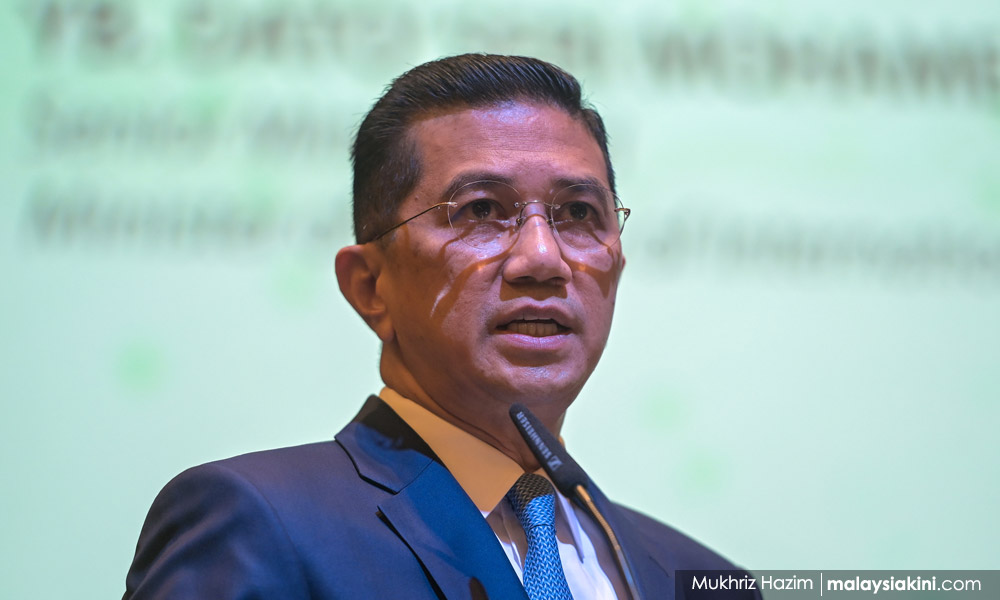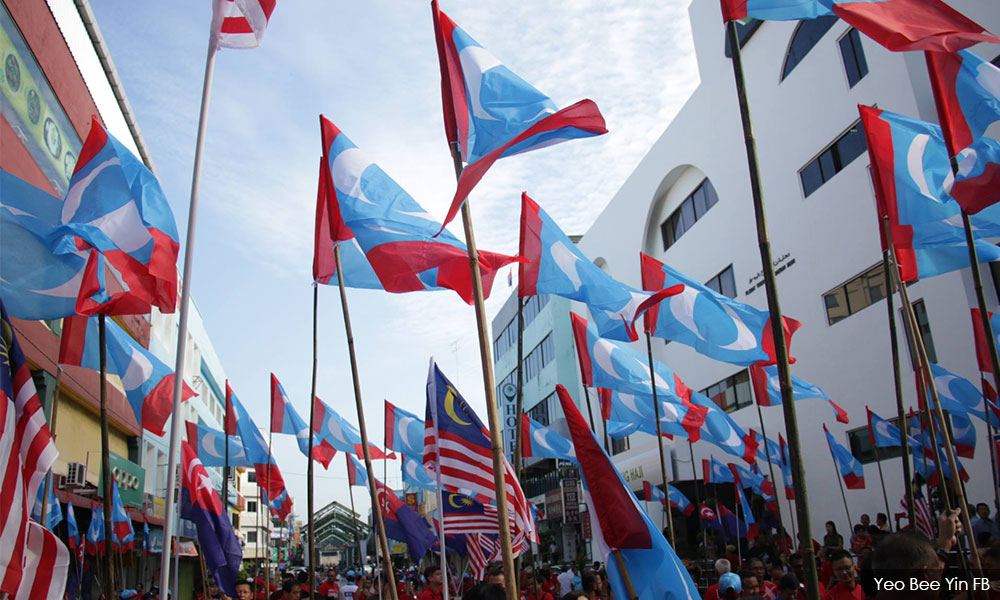This article was originally published on Between The Lines, a weekday newsletter that summarises the most important news stories with insights, context and wit! Sign up here.
After two public debates (see here and here), a feisty campaign and a low voter turnout of less than 13 percent of PKR’s 1.1 million members, the preliminary results from PKR’s party elections results are in.
The main headline — the victory of outspoken, confrontational Rafizi Ramli over the more soft-spoken conciliatory incumbent secretary-general Saifuddin Nasution Ismail for the deputy president position.
Rafizi’s allies secured most of the senior leadership positions, although incumbents holding state leadership positions such as Menteri Besar Amirudin Shari in Selangor and MB Aminuddin Harun in Negeri Sembilan won, as did leaders with strong independent name recognition such as Adam Adli as youth chief.
Despite low turnout among members, PKR’s 2022 polls were largely a victory for democracy. PKR has led the way in bringing about democratic practices in a party election, with a record number of members directly selecting the party leadership.
While there have been concerns raised about voting irregularities, PKR has put in place processes to review any problems and dubious voting, and made improvements to strengthen the electoral process.
The detailed election results will be announced later in the week, but the unofficial results point to significant changes inside PKR. These will, in turn, impact the party’s relationship within Pakatan Harapan and with voters.

Rise of younger generation leaders
Foremost is the rise of a younger generation of leaders. Over 10,000 candidates contested, with a slew of incumbents losing their positions.
Long-standing prominent party stalwarts from Shamsul Iskandar Md Akin of Malacca (Hang Tuah Jaya) to Johari Abdul of Kedah (Sungai Petani) lost to younger challengers.
We also see the displacement of incumbents in Hulu Selangor, Sekijang and Batu.
After the Sheraton Move and subsequent party purge of those seen to be tied to the Azmin Ali cartel, PKR’s 7th party election provided an opportunity for renewal.
What has emerged is a regeneration; an endorsement of younger leaders that have either stayed loyal to the party’s reformist ideals or strengthened the party through their government positions.
As is happening across Harapan parties, those in the middle ranks of the party have now assumed more important leadership positions, as many of those who founded PKR during the height of Reformasi, such as Tian Chua, have been displaced.
There are now new leaders at the helm who claim their reformist credentials from more recent times (notably, since 2008) and have greater connectivity to Malaysia’s young electorate.
Anwar’s loss
Inevitably, the generational shift affects the standing of older leaders, not least for its party president. Anwar Ibrahim has long been seen to personify the party and its struggle. This is no longer the case.
In fact, the party polls were arguably an erosion of support for Anwar. While he maintained his hold on the presidency without contest, many of those closest to him, including Saifuddin, Farhash Wafa Salvador Rizal Mubarak (contesting in Gombak) and Johari, lost.

Anwar’s quiet endorsement did not favour those he supported. Quite the opposite. Anwar’s lack of enthusiasm for Rafizi and defensive reactions to his criticisms of the party’s performance backfired.
Many who voted for Rafizi were, in fact, voting against Anwar’s record at the leadership helm. There was also open resistance to decisions made by Anwar, as occurred in Alor Gajah where dropped candidate in Malacca state polls, Ginie Lim, won this division.
The party mandate Rafizi has received positions him as an alternative leader to Anwar.
The clarion call for Anwar to step aside will become louder as there is now another person to lead the party in the coming 15th general election (GE15).
This will not sit well with the party supremo, who has yet to accept that PKR’s future will be determined by other leaders than him.
From divided camps to factions
PKR’s party election shows that Anwar has less control of his own party. There is the emergence of diverse, more decentralised power centres.
Unlike in the 2018 party polls, where competition among leaders, personality differences and expectations of zero-sum loyalty to the Azmin or Rafizi camps contributed to party splits and conditions that led to the Sheraton Move, the current situation is different.

Rather than two camps, there are now multiple factions, with less strong personality loyalties and greater competition.
One striking development has been an erosion of multi-ethnic and gender representation in the results. Men and Malays have won most of the elected positions.
The voting patterns, nevertheless, reveal considerable variation and complexity in voting. Of the results posted, they reveal highly competitive contests, with many contests where voting was evenly split.
Many divisional contests came down to a few (less than 20) votes, such as Sik, Subang, Kluang, Kalabakan, Sembrong, Padang Besar, Masjid Tanah, Sri Gading, Segamat, Teluk Intan, Pekan, Parit, Kuala Nerus, Kuala Langat, Kuala Pilih, Kota Bharu, Dungun, Simpang Renggam, Tanjong Manis and Kinabatangan.
Many voted for individual candidates in their own right or for smaller clusters of candidates rather than an approved slate of candidates in two different camps. This explains, for example, why Rafizi’s allies failed to win all of the vice-president or youth chief positions.
While PKR still has divisions, these appear — at least at this stage — to offer greater opportunity for the party to come together and rebuild trust rather than operate in different personality-tied war zones.
Crucial will be whether Rafizi adopts a more conciliatory approach towards those he abandoned in 2018 during his respite from politics, and whether Anwar steps away from a long-standing pattern of pitting younger leaders against each other
Disquiet and trouble
PKR’s internal issues have profoundly affected Harapan’s political fortunes. The Sheraton Move was tied to divisions inside PKR.
As with Umno, PKR’s polls shape Malaysia’s political future. If PKR remains focused internally, this will negatively impact the opposition’s fortunes and its own party’s performance, already at record lows.

The issue of coming together goes beyond PKR, to include how the party’s new leadership will — or will not — work with its opposition allies.
Rafizi has had a strained relationship with Harapan partners in the past and is seen to be resistant to including youth party Muda as part of the opposition moving forward.
It remains to be seen whether those in new leadership positions in PKR have a new vision for the now broader opposition to work collaboratively.
Rafizi’s victory brings with it disquiet among other opposition parties, given that his campaign was implicitly critical of PKR’s coalition partners and did not embrace new parties.
The party, however, that has the most to be concerned about from this result is Umno. The PKR election has energised the opposition, with greater political debate and attention to the need to focus on policies and re-engage the electorate. Umno and former president Najib Abdul Razak have been put on the defensive.
Meanwhile, Umno’s leadership remains stagnant and embroiled in court cases, with its party election and the opportunity for younger leaders to rise delayed.
Comparatively, PKR’s new leadership is more dynamic and offers younger Malays as leaders to the electorate.
This will be especially the case if Anwar finally chooses to step aside and allow younger leaders to move Malaysia forward.
While PKR has a (very) long way to go to recover political ground and will need political allies, the changing of the guard shows that the party is no longer all about Anwar. - Mkini
BRIDGET WELSH is currently an Honorary Research Associate of the University of Nottingham, Malaysia’s Asia Research Institute (Unari), based in Kuala Lumpur. She is also a Senior Research Associate at the Hu Fu Centre for East Asia Democratic Studies, and a Senior Associate Fellow of The Habibie Centre. Her writings can be found at bridgetwelsh.com.
The views expressed here are those of the author/contributor and do not necessarily represent the views of MMKtT.




No comments:
Post a Comment
Note: Only a member of this blog may post a comment.